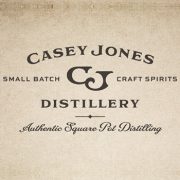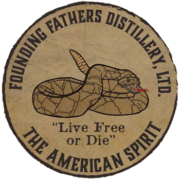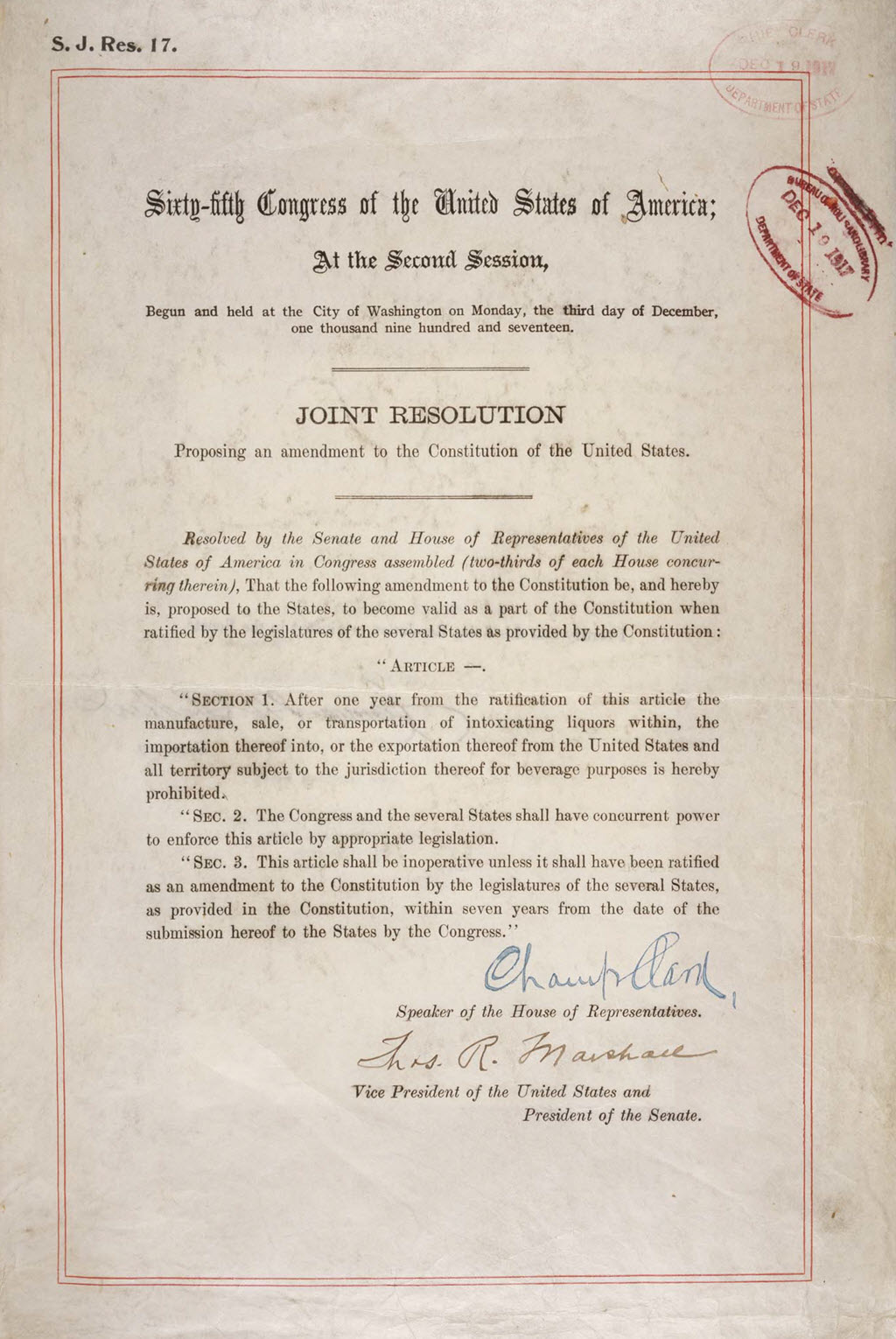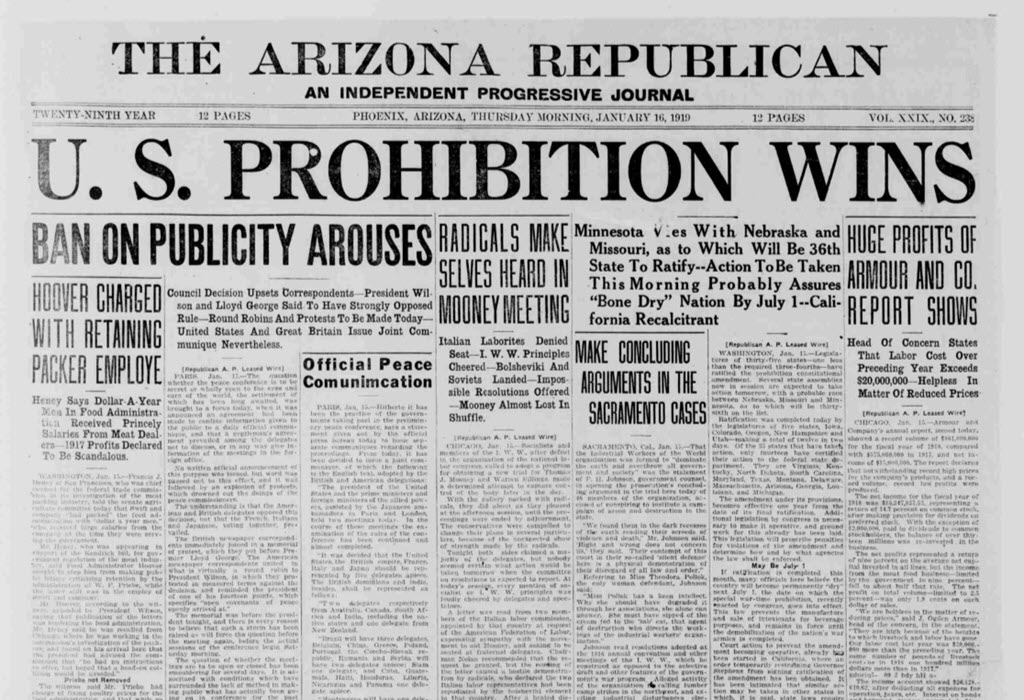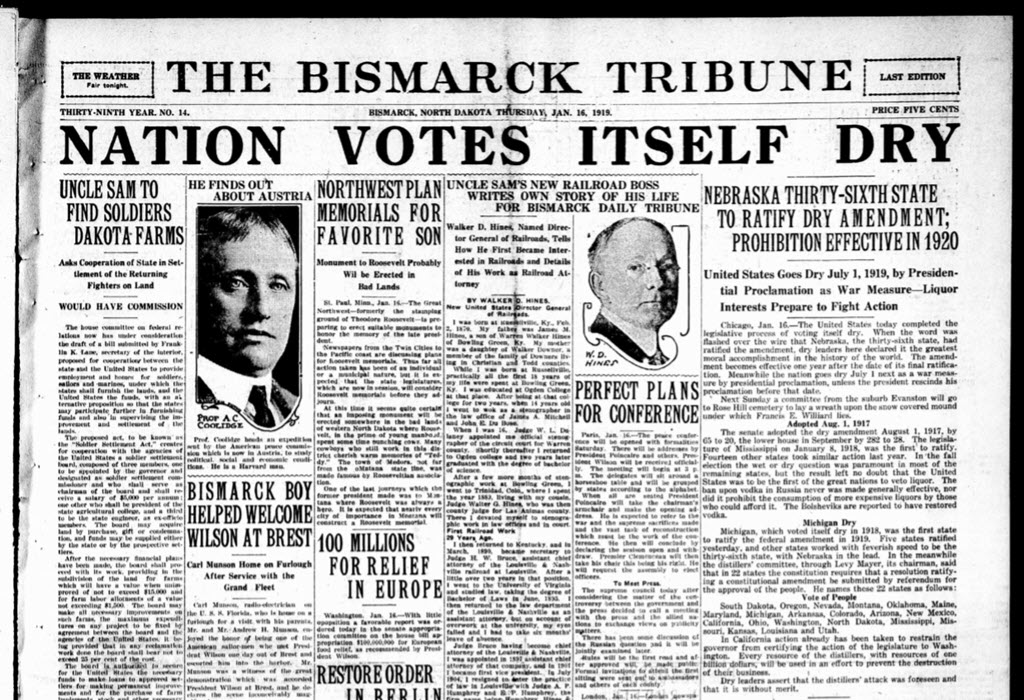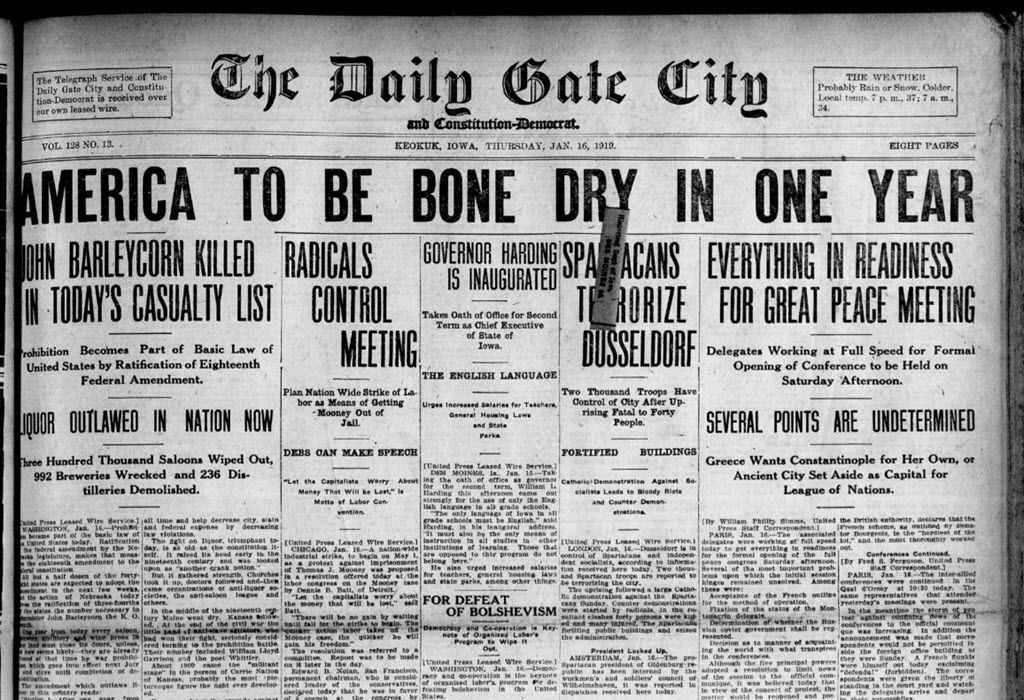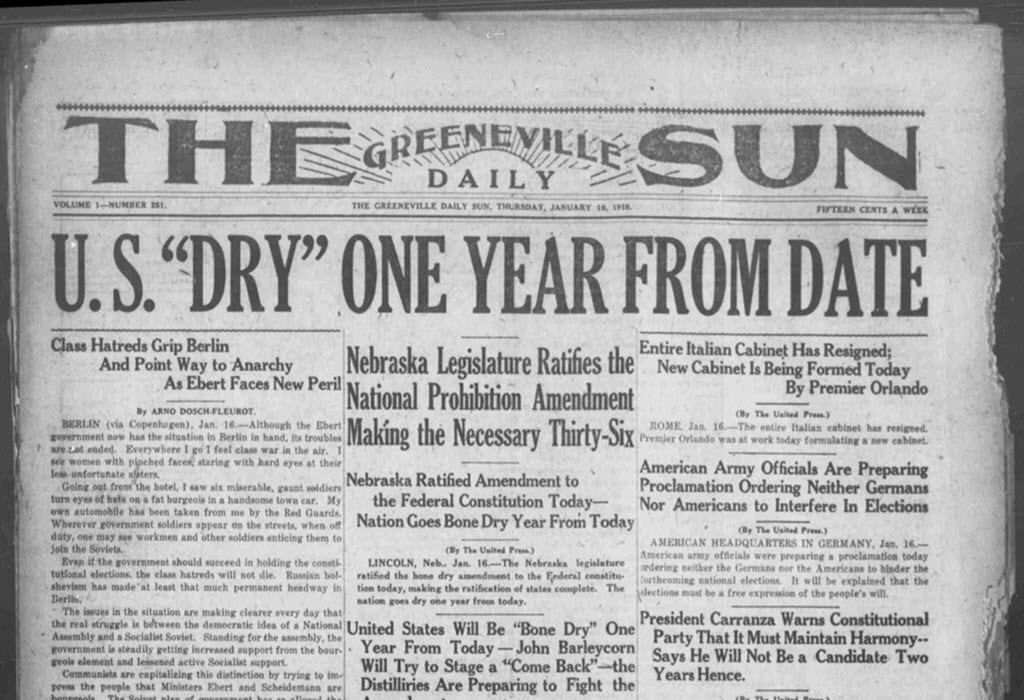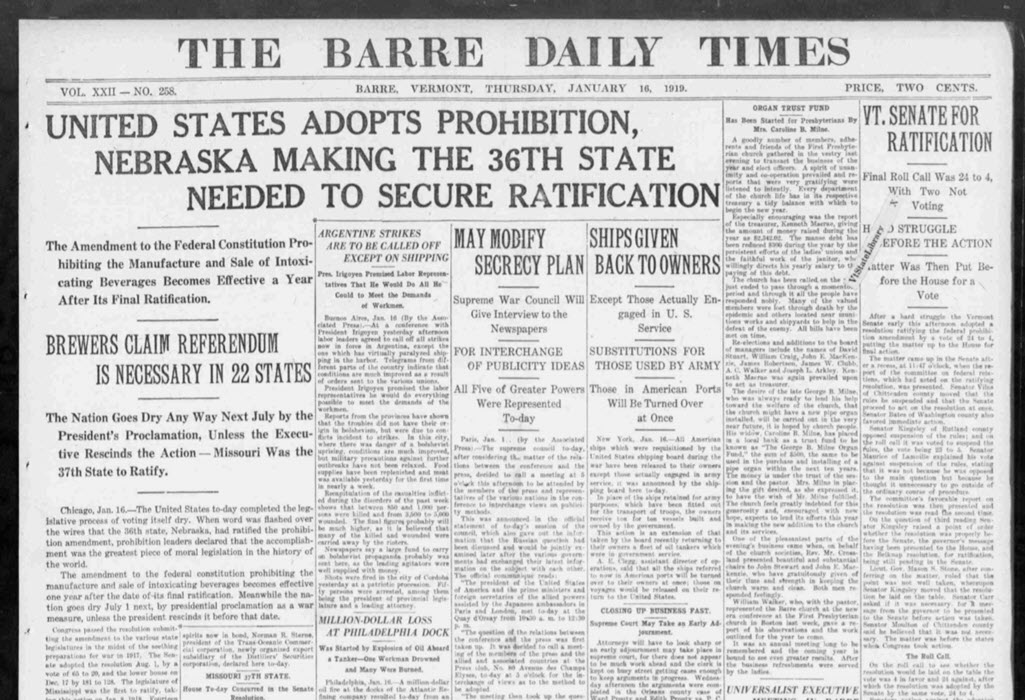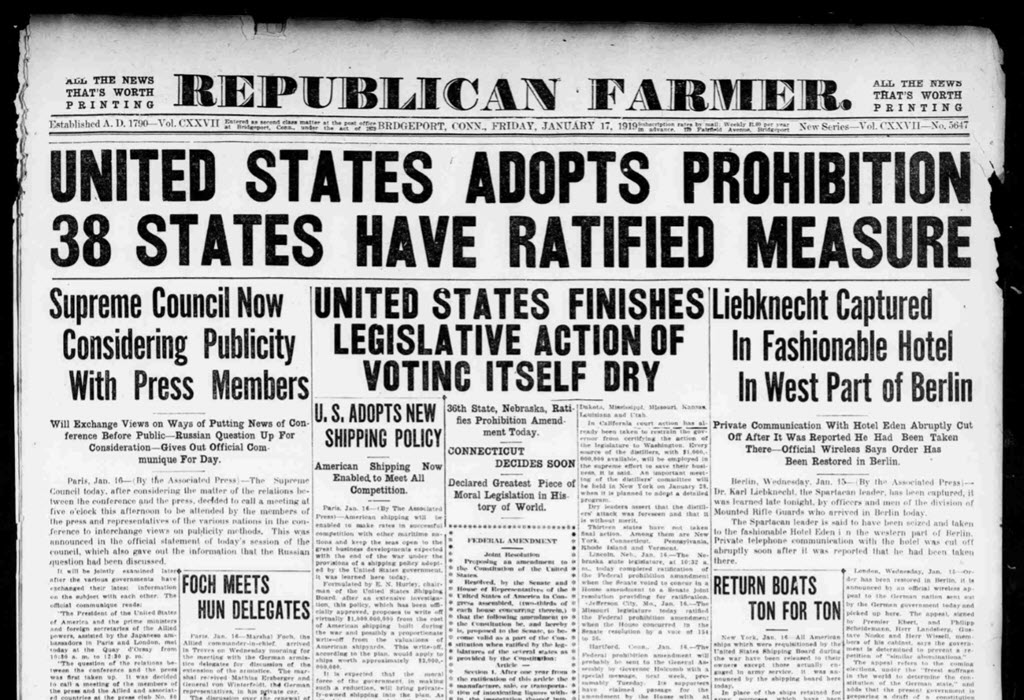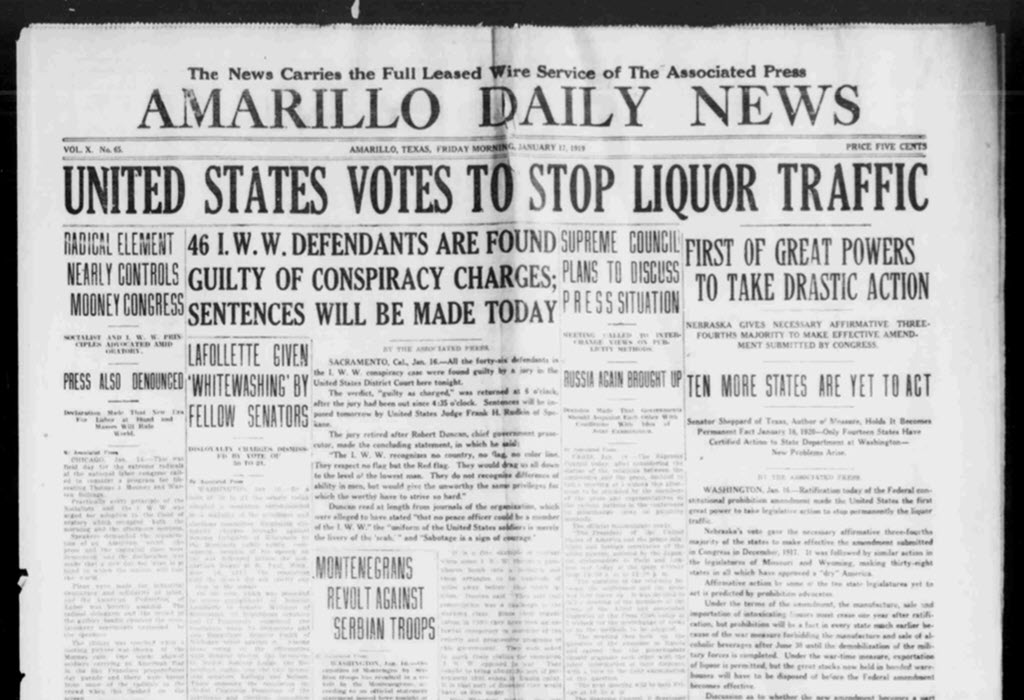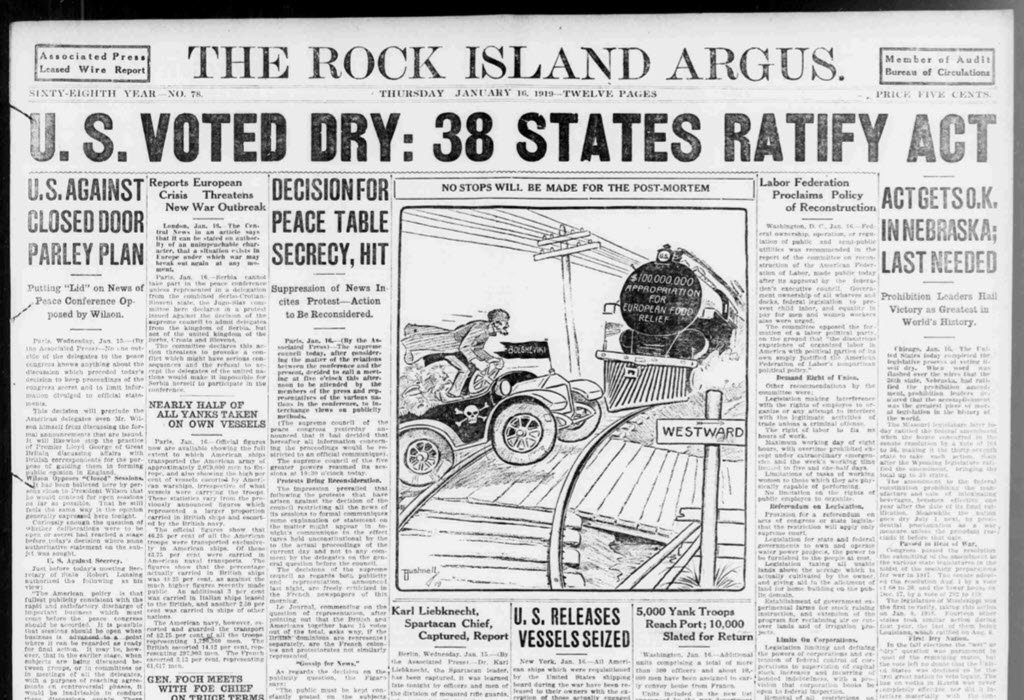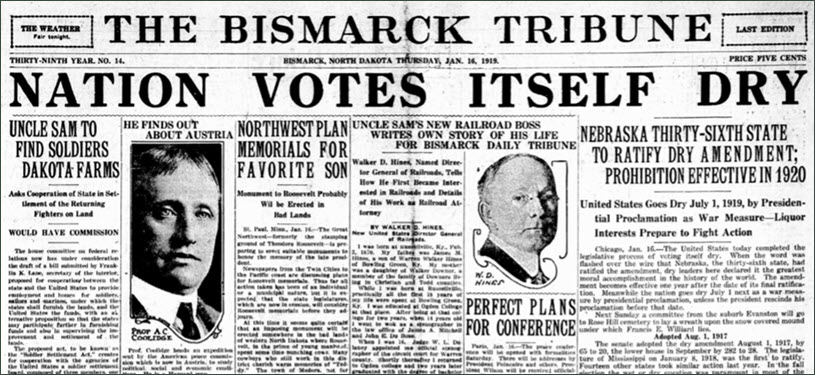
100 years ago today, on January 16, 1919 the United States of America voted itself dry. With a three-forth majority vote, the state of Nebraska became the 36th state to ratify the 18th Amendment making Prohibition the law of the land effective one year from this date. Later that year President Woodrow Wilson vetoed the law. That veto was short lived as Wilson’s veto was overridden by the House on the same day, October 27, 1919, and by the Senate one day later on October 28th.
We’ve gathered together some helpful documents to take you back to those days. We’ve included the actually Eighteenth Amendment document and text along with several newspaper headlines from the days surrounding the ratification. It’s also interesting to read some of the other headlines of the day to see that not much has changed in 100 years.
Without further ado, let’s dig in to some American history and the start of a 13 year dry spell.
UNITED STATES VOTES TO STOP LIQUOR TRAFFIC
FIRST OF GREAT POWERS TO TAKE DRASTIC ACTION
WASHINGTON, Jan.16 – Ratification today of the Federal constitutional prohibition amendment made the United States the first great power to take legislative action to stop permanently the liquor traffic.Nebraska’s vote gave the necessary affirmative three-forths majority of the states to make effective the amendment submitted in Congress in December, 1917. It was followed by similar action in the legislatures of Missouri and Wyoming, making thirty-eight states in all which have approved a “dry” America.
~ Amarillo Daily News, January 1919
Eighteenth Amendment to the United States Constitution
Here is the actual signed 18th Amendment to the United States Constitution along with the text version below it.
U.S. Constitution – The 18th Amendment
SECTION 1. After one year from the ratification of this article the manufacture, sale, or transportation of intoxicating liquors within, the importation thereof into, or the exportation thereof from the United States and all territory subject to the jurisdiction thereof for beverage purposes is hereby prohibited.
SEC. 2. The Congress and the several states shall have concurrent power to enforce this article by appropriate legislation.
SEC. 3. This article shall be inoperative unless it shall have been ratified as an amendment to the Constitution by the legislatures of the several states, as provided in the Constitution, within seven years from the date of the submission hereof to the states by the Congress.
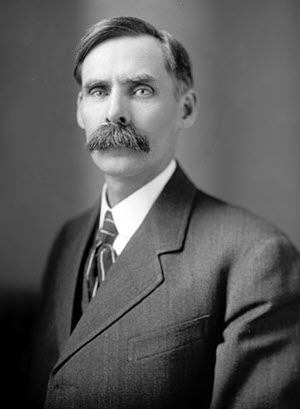
U.S. House of Representative Andrew Volstead of Minnesota.
The 18th Amendment banned but did not define “intoxicating liquors.” Some of the members of Congress who had voted for the amendment assumed that it referred to hard liquor and would exempt beer and wine. But the head of the Anti-Saloon League drafted a tough enforcement act, which was then sponsored by the chairman of the House Judiciary Committee, Minnesota representative Andrew Volstead. The National Prohibition Act, better known as the Volstead Act, defined an intoxicating beverage as anything that contained more than one half of one percent alcohol. By contrast, Canadian prohibition laws set the limit at 2.5 percent. The Volstead Act made it illegal to “manufacture, sell, barter, transport, import, export, deliver, furnish, or possess” such beverages.
The Eighteenth Amendment provided that the “Congress and the several states” would have power to enforce Prohibition by legislation, but the sweeping Volstead Act left the states no room for local option or any other flexibility. Ironically, the law called for a vast increase in the federal government’s intervention in society just as “limited government” advocates were coming into office.
The result was more than a decade of lawlessness, with citizens flaunting the law at speakeasies and bootleggers corrupting public officials. On Capitol Hill, a rumrunner known as “The Man in the Green Hat,” operated freely out of the Senate office building. Between the Prohibition years of 1920 and 1930, rumrunner George Cassiday served as Congress’s primary bootlegger. By 1932, polls showed that the great majority of Americans believed that Prohibition had failed. The repeal of Prohibition became a popular campaign theme for Franklin D. Roosevelt, and the Twenty-first Amendment, which was approved soon after he swept into the presidency, finally nullified the misguided Volstead Act.1
Stay Informed: Sign up here for the Distillery Trail free email newsletter and be the first to get all the latest news, trends, job listings and events in your inbox.
Historical Newspaper Headlines from January 16 and 17, 1919
Here are several newspaper from this time that chronicled this important date in United States history. Click on any image to enlarge.
This U.S. Self Imposed Dry Spell Lasted 13 Years
This American dry spell lasted until the 21st Amendment grants states the right to control alcohol. On February 16, 1933 the US Senate passed a resolution for the repeal of the 18th Amendment; immediately following, on the 20th, it was also passed by the House of Representatives. It was then up to the states: Utah became the final state needed for ratification on December 5, 1933. Hallelujah!
Resources
1. United States Senate – The Senate Overrides the President’s Veto of the Volstead Act
Newpaper clippings – Library of Congress
Please help to support Distillery Trail. Sign up for our Newsletter, like us on Facebook and follow us on Twitter.

